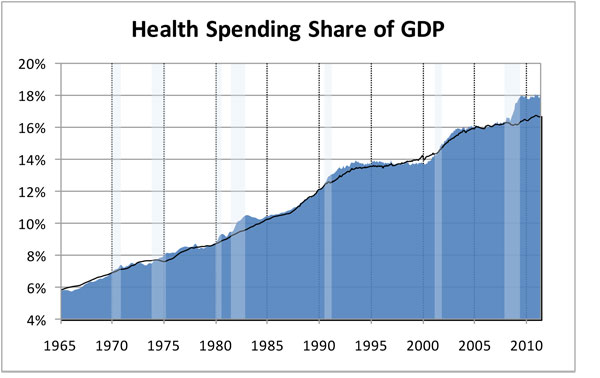“Bending the curve”–slowing the rate of health care cost growth–continues to be front and center in the health policy and health services research world. It’s imperative that we do something to bring costs under control, but the more I think about it, the more my cynicism dominates my thinking. As I see it, the American people are the biggest hurdle to the implementation of cost-saving reforms. Now that has nothing to do with political preferences or party affiliations. Rather, I am talking about the attitude most Americans have towards health care spending.
“Bending the curve”–slowing the rate of health care cost growth–continues to be front and center in the health policy and health services research world. It’s imperative that we do something to bring costs under control, but the more I think about it, the more my cynicism dominates my thinking. As I see it, the American people are the biggest hurdle to the implementation of cost-saving reforms. Now that has nothing to do with political preferences or party affiliations. Rather, I am talking about the attitude most Americans have towards health care spending.
Most Americans (especially those under 65) see the need for cuts in Medicare, for example, but they don’t want to see their own benefits reduced in any way. If you don’t believe that, ask yourself how the GOP can have so much support for cutting spending, while the only real point in the last 50 years when health care spending growth slowed was during the era of managed care that resulted in a tremendous popular backlash and a move to PPOs. If you want data, here’s a nice chart:
Essentially, it is a classic example of the “us” versus “them” problem. Notable variants include the “we” versus “they” dilemma and the “I” versus “you” conundrum. The central issue in each case is our tendency to apply a different standard to the “us” “we” or “I” than we apply to the “them” “they” or “you.” For example, “I” would like to have access to the best health care in the world, but “I” would not necessarily like to pay for “you” to have it, too. When it comes to me and my family, “we” want what is best for “us” and as for everyone else, “we” leave it up to “them” to do the best “they” can. But, if the “I” can be expanded to the “we” or “us” and still make sense, then why can’t we expand our scope so that “we” includes all Americans? Many would say that that sort of solidarity is just not the American way. Duly noted. Then perhaps we should use the one thing that we all share to unite us.






